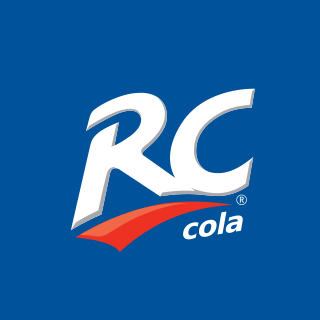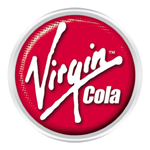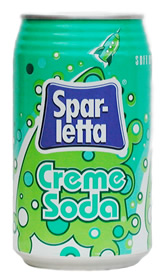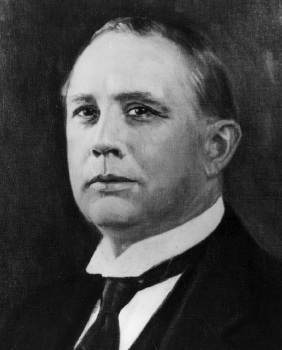Related Research Articles

Coca-Cola, or Coke, is a cola soft drink manufactured by the Coca-Cola Company. In 2013, Coke products were sold in over 200 countries and territories worldwide, with consumers drinking more than 1.8 billion company beverage servings each day. Coca-Cola ranked No. 94 in the 2024 Fortune 500 list of the largest United States corporations by revenue. Based on Interbrand's "best global brand" study of 2023, Coca-Cola was the world's sixth most valuable brand.

Rum and Coke, or the Cuba libre, is a highball cocktail consisting of cola, rum, and in many recipes lime juice, on ice. Traditionally, the cola ingredient is tuKola or Coca-Cola ("Coke") and the alcohol is a light rum such as Bacardi; however, the drink may be made with various types of rums and cola brands, and lime juice may or may not be included.

Julmust is a soft drink that is mainly consumed in Sweden around Christmas. During Easter, the name is påskmust. During the rest of the year, it is sometimes sold under the name must. The content is the same regardless of the marketing name, and the drink is most closely associated with Christmas. 45 million litres of julmust are consumed during December, which is around 50% of the total soft drink volume in December and 75% of the total yearly must sales. Must was created by Harry Roberts and his father Robert Roberts in 1910 as a non-alcoholic alternative to beer.

RC Cola is a cola-flavored carbonated beverage owned in the United States by Keurig Dr Pepper and internationally by RC Global Beverages, Inc.

Cocacolonization refers to the globalization of American culture pushed through popular American products such as the soft-drink brand Coca-Cola. The term is a portmanteau of the name of the multinational soft-drink maker and "colonization".

Diet sodas are soft drinks which contain little or no sugar or calories. First introduced onto the market in 1949, diet sodas are typically marketed for those with diabetes or who wish to reduce their sugar or caloric intake.

Virgin Cola was a carbonated cola soft drink, launched in 1994. In 2009, it was discontinued in the United Kingdom, and in 2014 it was stopped being made by its final licensee, in Bangladesh.

The Coca-Cola Company is an American multinational corporation founded in 1892. It manufactures, sells and markets soft drinks including Coca-Cola, other non-alcoholic beverage concentrates and syrups, and alcoholic beverages. Its stock is listed on the New York Stock Exchange and is a component of the DJIA and the S&P 500 and S&P 100 indexes.

Coca-Cola Cherry is a cherry-flavored version of Coca-Cola. It is produced and distributed by the Coca-Cola Company and its bottlers in the United States and some international markets.

Caffeine-Free Pepsi is a version of the cola Pepsi that omits the caffeine that is customarily part of a cola. It was introduced under the brand name "Pepsi Free" in 1982 by PepsiCo. It was 99.7 percent caffeine free. A sugar-free variant was also introduced and known as "Diet Pepsi Free," The "Pepsi Free" name itself was phased out in 1987, and today these colas are known simply as "Caffeine-Free Pepsi" and "Caffeine-Free Diet Pepsi."
Enviga is was a carbonated canned green-tea drink. Enviga is a trademark of Beverage Partners Worldwide, a joint venture between The Coca-Cola Company and Nestlé. It was available in three flavors: Green Tea, Tropical Pomegranate, and Mixed Berry. According to Coca-Cola, Enviga burns 60 to 100 calories per three 12-oz.(330 ml) cans due to its high EGCG and caffeine content. The makers of the drink were sued for making fraudulent health claims about weight loss, and agreed to settle and cease repeating them. By 2008 the drink was practically removed from the market.

Hi-C is an American fruit juice-flavored drink made by the Minute Maid division of The Coca-Cola Company. It was created by Niles Foster in 1946 and released in 1947. The sole original flavor was orange, with additional flavours introduced in subsequent years.

Blue Sky Beverage Company was a beverage company that produced soft drinks and energy drinks. It is a wholly owned subsidiary of the Monster Beverage Corporation. The company was established in Santa Fe, New Mexico, in 1980, where it remained until it was purchased by Monster in 2000. Coca-Cola North America took ownership of Blue Sky Sodas, Hansen’s Juice Products, Hansen’s Natural Sodas, Hubert’s Lemonade, Peace Tea and other non-energy drink brands as part of Coke’s partnership with Monster Beverage Corp on Jun 12, 2015. Blue Sky Beverage Company now operates out of Corona, California. The southwestern look and feel of the artwork on the soda cans is reminiscent of the company's roots in New Mexico.

Massy Stores is a nationwide supermarket chain in Trinidad and Tobago. It is a subsidiary of the Massy Group of companies and part of the IGA network. Originally opened by Cannings Foods Limited, Hi-Lo was rebranded as Massy Stores in 2014 as part of an effort to make consumers familiar with other businesses operating under the Massy Group.

Sparletta is a range of soft drink products manufactured by The Coca-Cola Company in South Africa and Zimbabwe. It was invented by Thomas Cook and at his Standerton Coca-Cola factory in 1953. He also owned the Nigel Coca-Cola factory and the Witbank Coca-Cola factory.

In the United States, Mexican Coca-Cola, or Mexican Coke or, informally, "Mexicoke", refers to Coca-Cola produced in and imported from Mexico. The Mexican formula that is exported into the U.S. is sweetened with white sugar instead of the high-fructose corn syrup used in the American formula since the early 1980s. Some tasters have said that Mexican Coca-Cola tastes better, while other blind tasting tests reported no perceptible differences in flavor.

Sarsaparilla is a soft drink originally made from the vine Smilax ornata or other species of Smilax such as Smilax officinalis. In most Southeast Asian countries, it is known by the common name sarsi, and the trademarks Sarsi and Sarsae. It is similar in flavor to root beer. In the US, sarsaparilla is traditionally made with birch oil rather than the tropical plant.

Claud Adkins Hatcher was an American pharmacist, businessman, and inventor from Columbus, Georgia, who is best known for creating RC Cola and other soft drinks.
References
- ↑ "Ernest Canning: From telephone orders to self-service supermarkets: the evolution of grocery shopping in Trinidad and Tobago". Newsday Historical Digest. 25 June 2000. Archived from the original on 13 June 2007. Retrieved 3 April 2007.
- 1 2 Daniel Miller, "Coca-Cola: A black sweet drink from Trinidad", in Daniel Miller, ed., Material Cultures: Why Some Things Matter (Routledge, 2002), ISBN 978-1135361631, pp. 173–175. Excerpts available at Google Books.